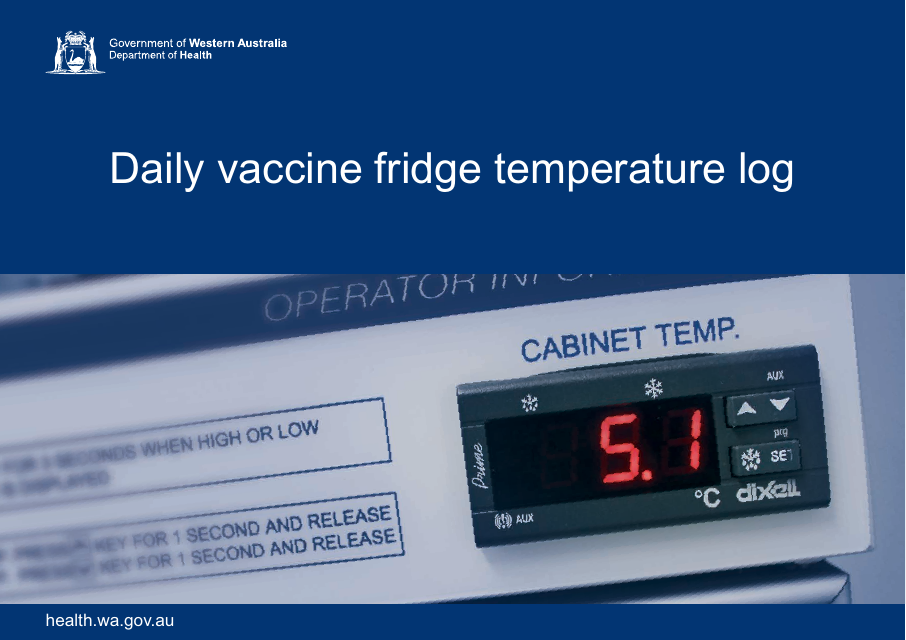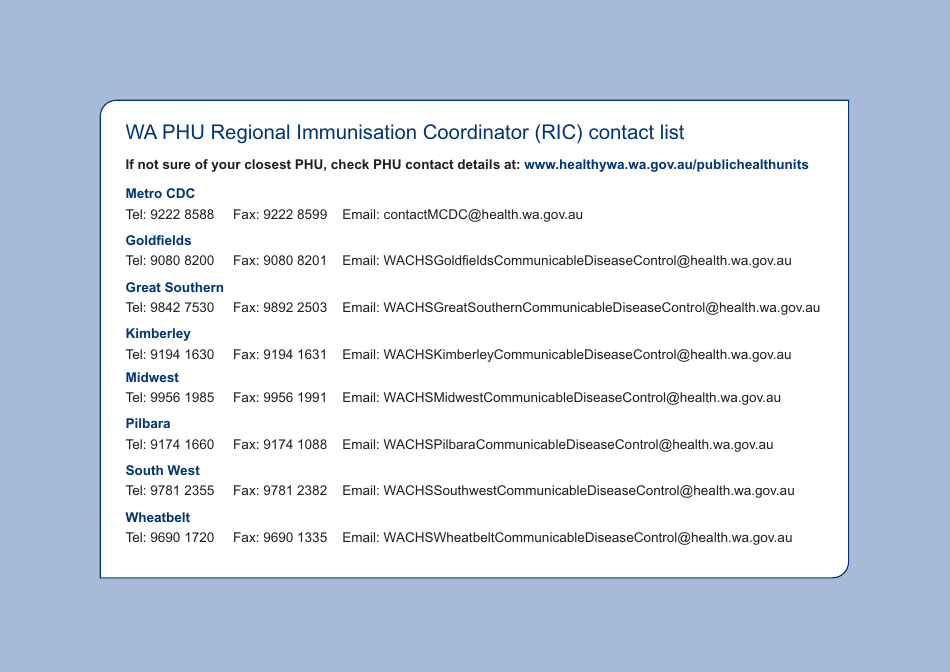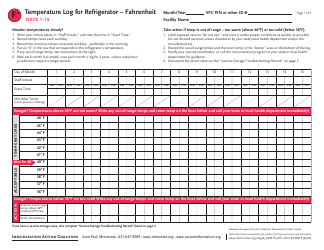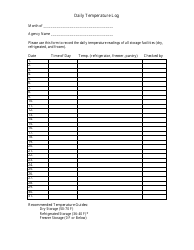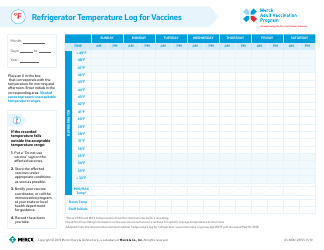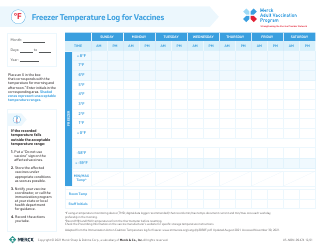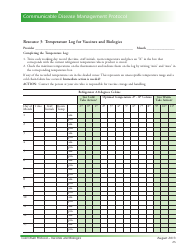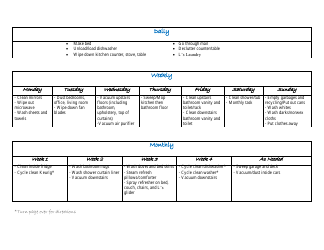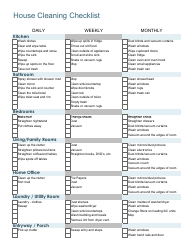Daily Vaccine Fridge Temperature Log - Western Australia, Australia
The Daily Vaccine Fridge Temperature Log in Western Australia, Australia is a document used for monitoring and recording the temperatures of fridges where vaccines are stored. It's essential for ensuring that vaccines are kept at the correct temperatures, usually between 2°C and 8°C (or 36°F and 46°F), to maintain their effectiveness. Incidents where the temperature falls outside of this range can affect vaccine potency, which could reduce their efficacy and safety. Therefore, the log helps health professionals to ensure the quality of vaccines and identify any potential issues with refrigeration promptly.
In Western Australia, Australia, the Daily Vaccine Fridge Temperature Log is typically filed by healthcare providers. These can include staff at medical centers, clinics, hospitals, and pharmacies who handle vaccines. The logs are essential to ensure that vaccines are stored within the required temperature range, which is typically between 2°C and 8°C. To maintain the potency of the vaccines, the temperatures should be checked and logged regularly.
FAQ
Q: What is the 'Daily Vaccine Fridge Temperature Log' from Western Australia, Australia?
A: The 'Daily Vaccine Fridge Temperature Log' is a temperature record sheet used in Western Australia for tracking the daily fridge temperature in which vaccines are stored. This helps to ensure that the vaccines remain at optimum temperatures for efficacy and safety.
Q: Why is maintaining a Daily Vaccine Fridge Temperature Log important?
A: Maintaining a daily record is crucial because vaccines need to be stored within a specific temperature range to ensure their effectiveness. If vaccines become too hot or cold, they might no longer work, potentially leading to ineffective immunisation and waste of resources.
Q: What is the recommended temperature to store vaccines in Australia?
A: According to the National Vaccine Storage Guidelines in Australia, the recommended temperature to store vaccines is between 2 degrees Celsius and 8 degrees Celsius.
Q: Who is responsible for maintaining the Daily Vaccine Fridge Temperature Log?
A: In medical facilities, it is generally the responsibility of medical staff, such as nurses or healthcare workers, to regularly document fridge temperatures and ensure they are within the safe range.
Q: How often should the vaccine fridge temperature be checked in Western Australia?
A: The Department of Health in Western Australia recommends checking and recording the vaccine fridge temperature twice daily – once in the morning and once in the afternoon.
Q: What happens if the temperature of the vaccine fridge varies too much?
A: If vaccine fridge temperatures deviate from the recommended range, it can reduce the vaccine's potency, making them less effective. In such a case, the healthcare provider should follow their Vaccine Cold Chain Breach protocol.
